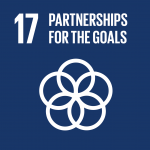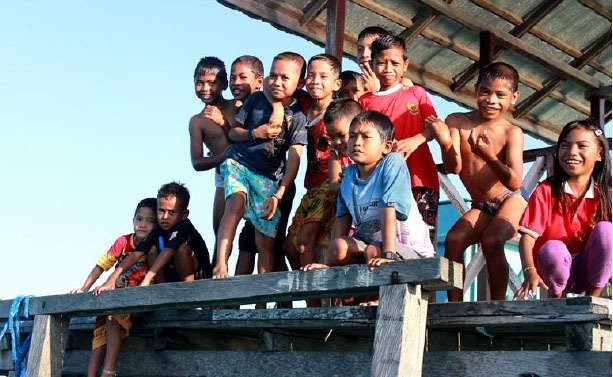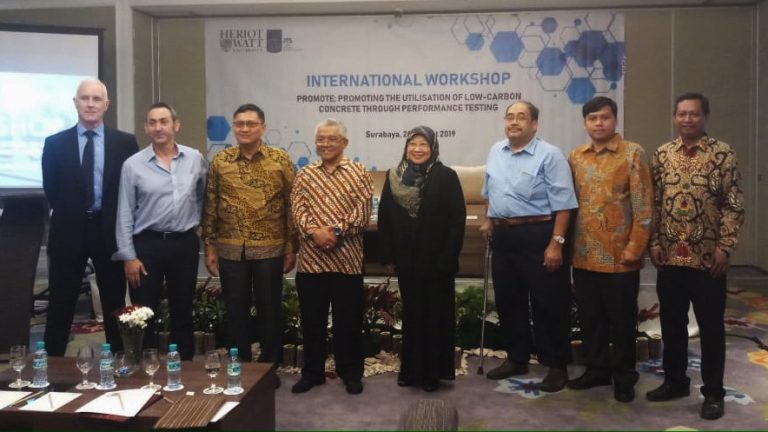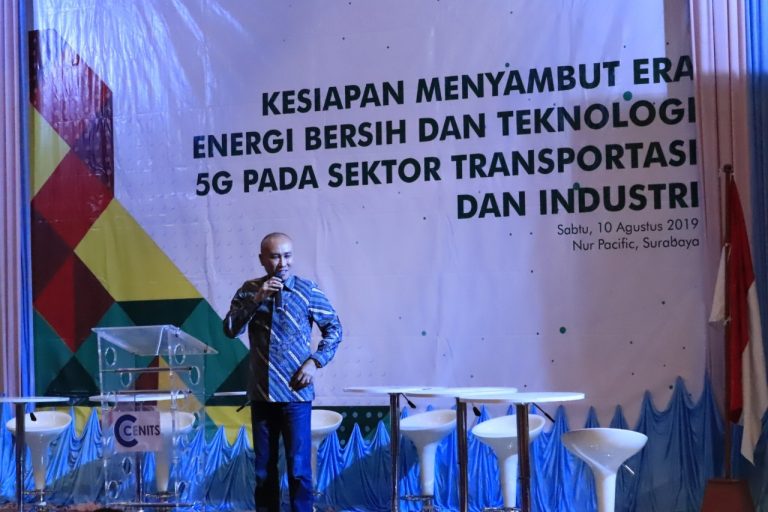“Sustainable development is the responsibility of every part of society, across the world. It cannot be achieved without linkages, across the goals, but also between institutions, governments, companies, NGOs, and people.”
(THE Impact Rankings)
SDG 17: PARTNERSHIP FOR THE GOALS
Relationships to support the goals
ITS Helps Surrounding City Becoming a Smart City
As one of the public university in Indonesia, Institut Teknologi Sepuluh Nopember (ITS) is obliged to do community service for surroundings. One of the implementation was through the signing of a Memorandum of Understanding (MoU) with the Ngawi District Government. As a technological university, one of the point in the MoU is that ITS helps Ngawi District to become a smart city.
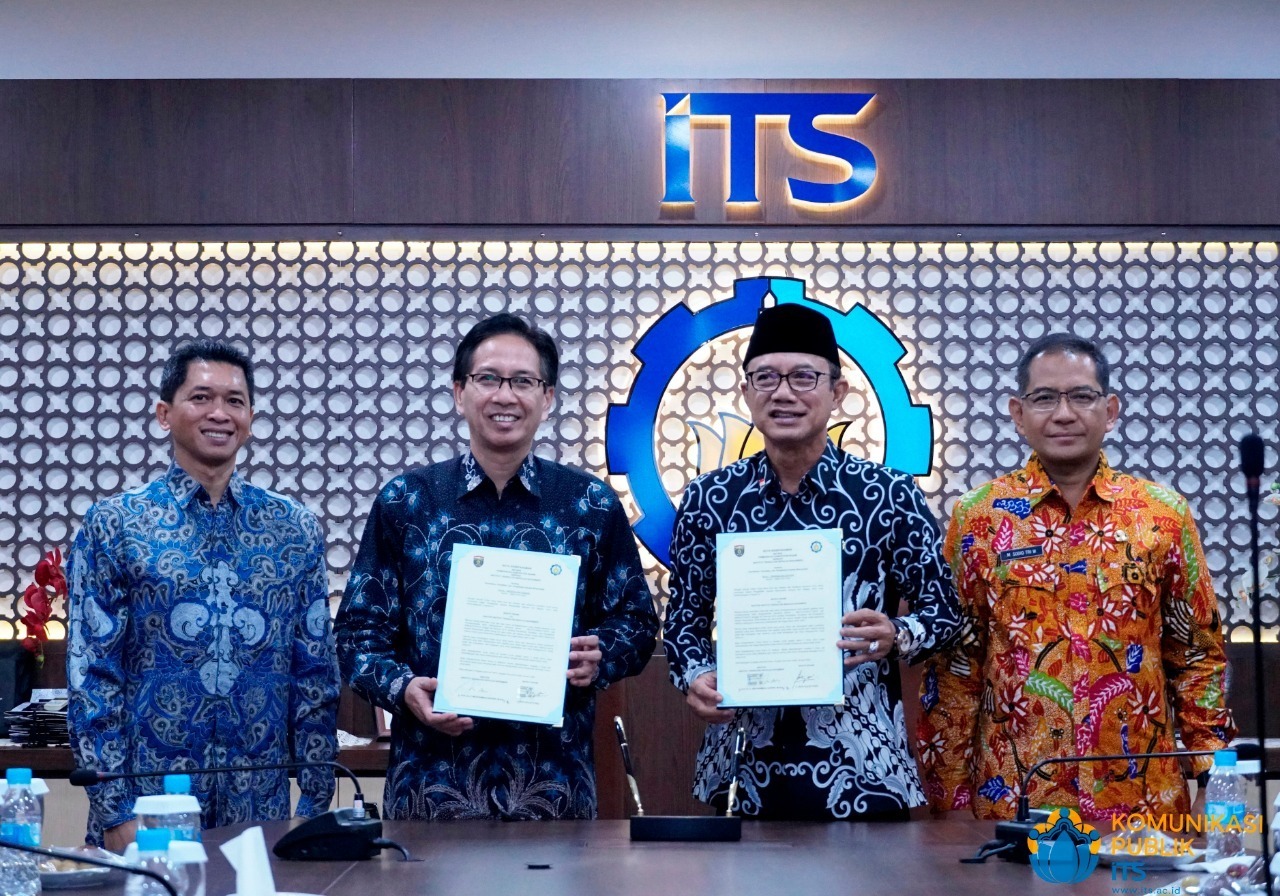
ITS Strives for Management of Green House Gas Emissions of International Sailing Ships
In order to equip students with the latest issues in the aspects of shipping, maritime affairs, and their relation to the environment, the Department of Marine Engineering of ITS invited a guest speaker from the Bureau Veritas Group, Rachmat Gunawan, M.Sc. The guest lecture entitled “Current Research Issues of Global Marine Emission Towards 2050” was held online on Friday (15/5), which discussed the management of Greenhouse Gas emissions of international sailing ships.

ITS Presents Guest Lecture Series on SDGs
ITS as a leading university in the field of science and technology in Indonesia is committed toward the development of engineering and science and also the achievement of United Nations’ Sustainable Development Goals (SDGs). As a part of that commitment, ITS presents Guest Lecture Series (GLS) on SDGs by inviting Lecturers, Experts, and Academicians from all around the world to be speaker for this program. This program is open for ITS students at any level (Undergraduate, Graduate, and Postgraduate) as well as interested global citizens from partner universities.

ITS Conducts Webinar on Climate and Coastline Change
Climate change will affect coastlines in the future. Sea level rise is not the only impact of climate change that will affect coastal areas. In order to equip students with this matter, Department of Geophysics Engineering of ITS conducts a webinar entitled “Perubahan Iklim dan Perubahan Garis Pantai”. This webinar presents experts in the field of climate change from Indonesian Meteorological, Climatological, and Geophysical Agency (BMKG), geo-archaeologists and marine geologists.
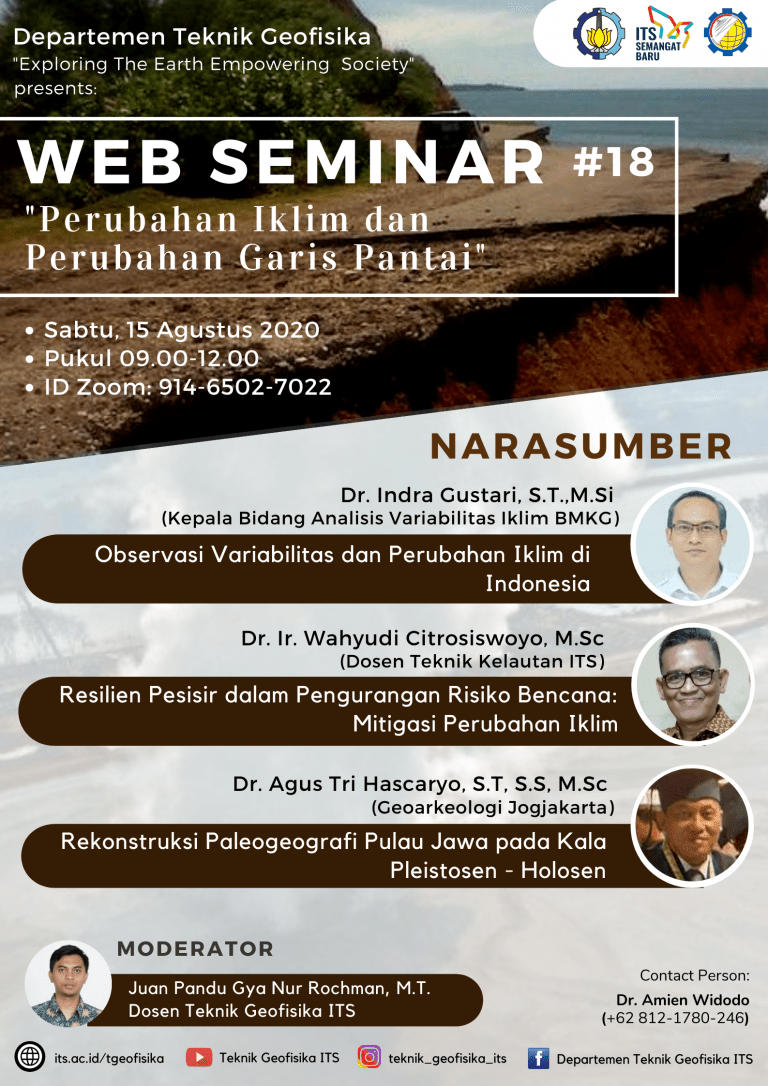
ITS International Cooperation in the Use of Low Carbon Materials
ITS continues to unleash its efforts to compete in the international arena. This time through an international cooperation program between Departement of Civil Engineering of ITS, which is driven by concrete laboratories and building materials with Heriot-Watt University (HWU), Edinburgh, Scotland. This activity is an international workshop entitled “PROMOTE: Promote the Utilisation of Low-carbon Concrete through Performance Testing”.
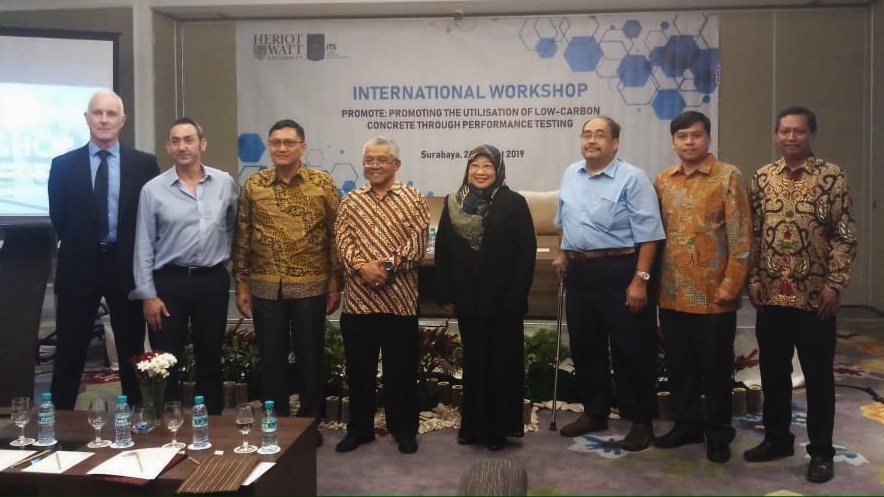
ITS to Establish Cooperation with the British Embassy
ITS continues to widen its network of cooperation, both nationally and internationally. It was proven by the acceptance of a delegation visit of the British Embassy led by Deputy Ambassador, Rob Fenn at ITS Rectorate Building. This visit discusses the cooperation in the field of education and research.
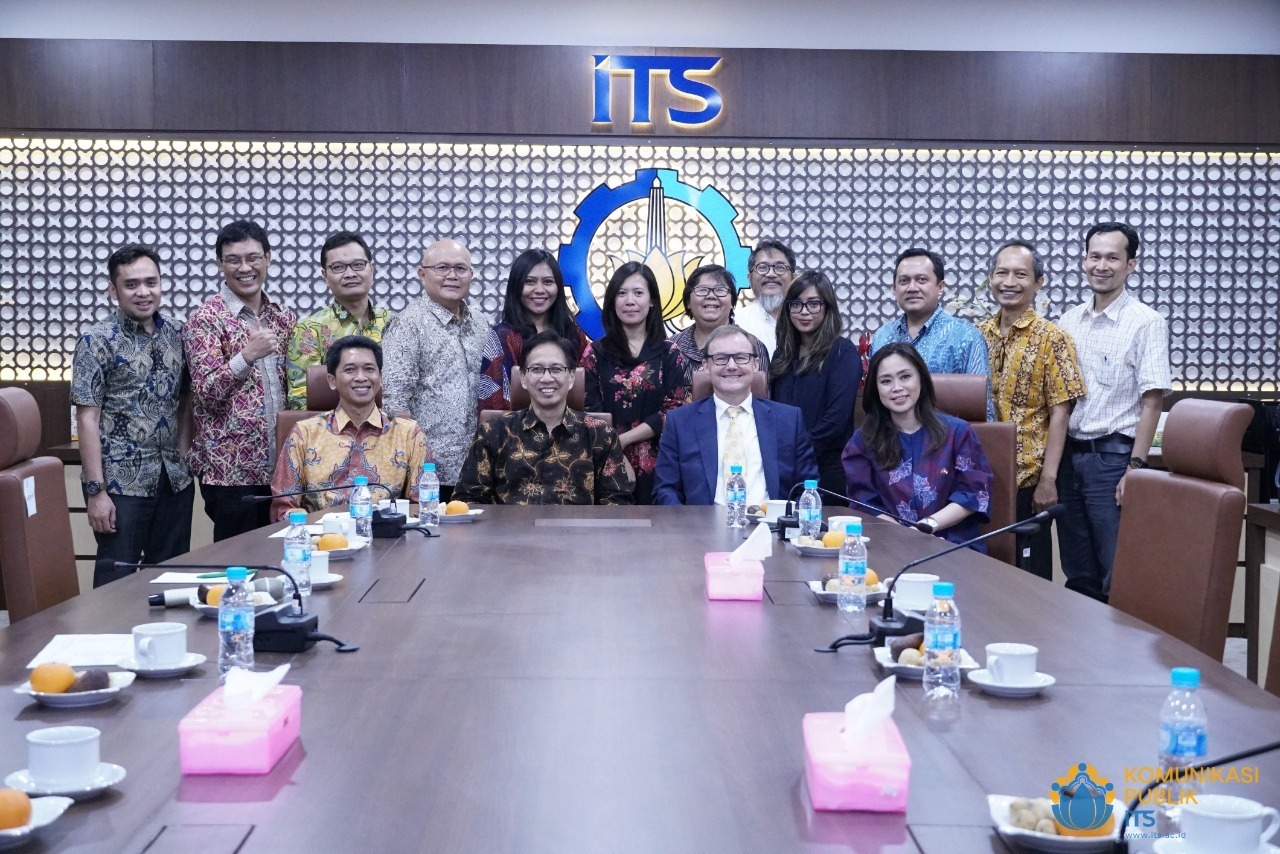
ITS and TU Berlin’s Collaboration on Sustainable City Development
ITS once again takes on a role on sustainable city development and the development of civilization. This time, through the International Seminar entitled “Conscious City: Sustainable and Equitable City-Making”. ITS in collaboration with Technische Universität (TU) Berlin discusses the concept of Smart City and a new idea, namely “Conscious City” in the Main Meeting Room of the ITS Rectorate.
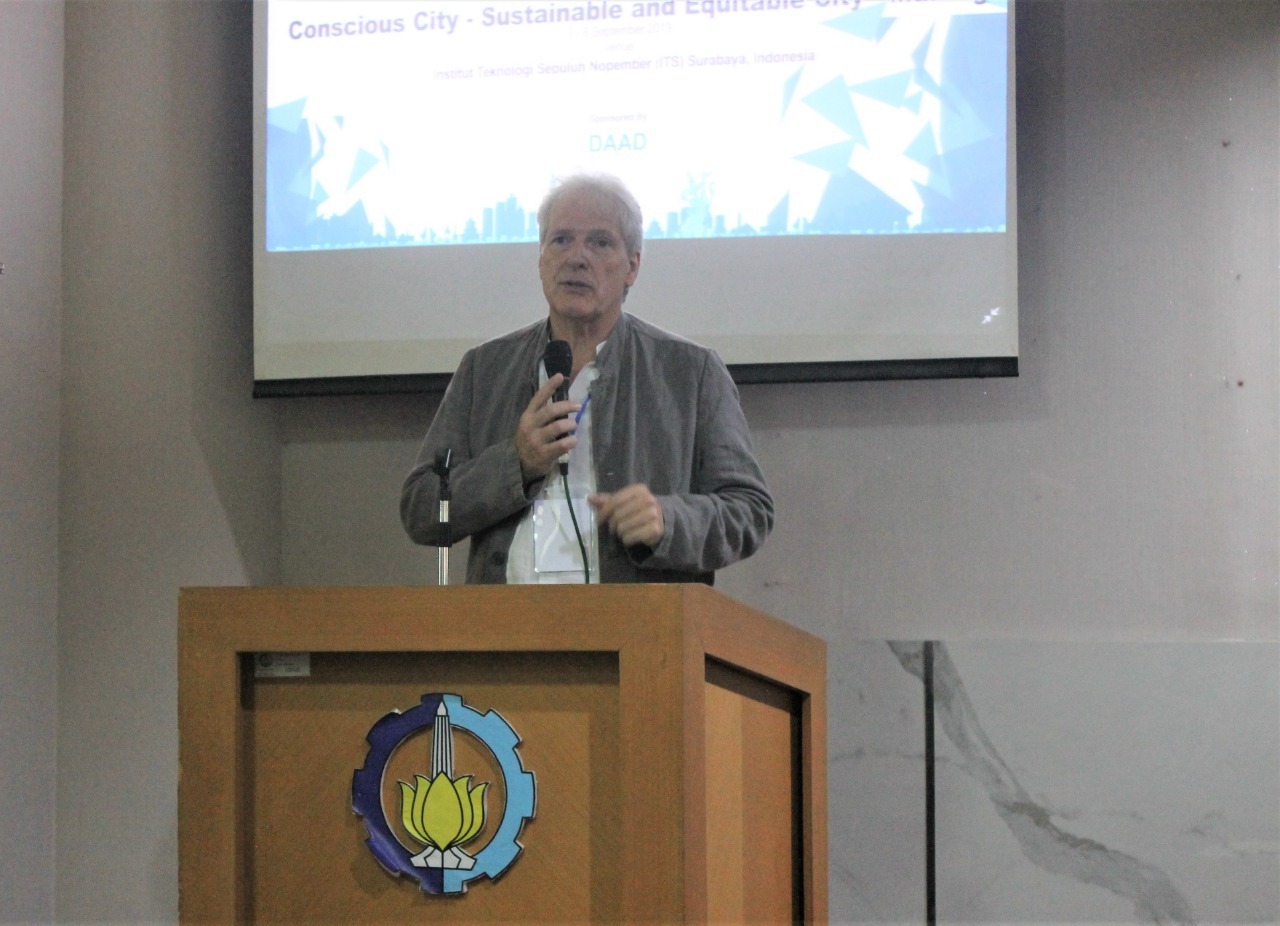
ITS International Cooperation in Renewable Energy
ITS supports international cooperation in renewable energy research from three countries, namely Indonesia, Malaysia and the UK in the ITS Rectorate. ITS is appointed as the host by the Global Challenge Research Fund (GCRF) through Queen Mary University of London (QMUL), United Kingdom. This event is attended by Prof. Alan Drew from QMUL as the project leader of GCRF.
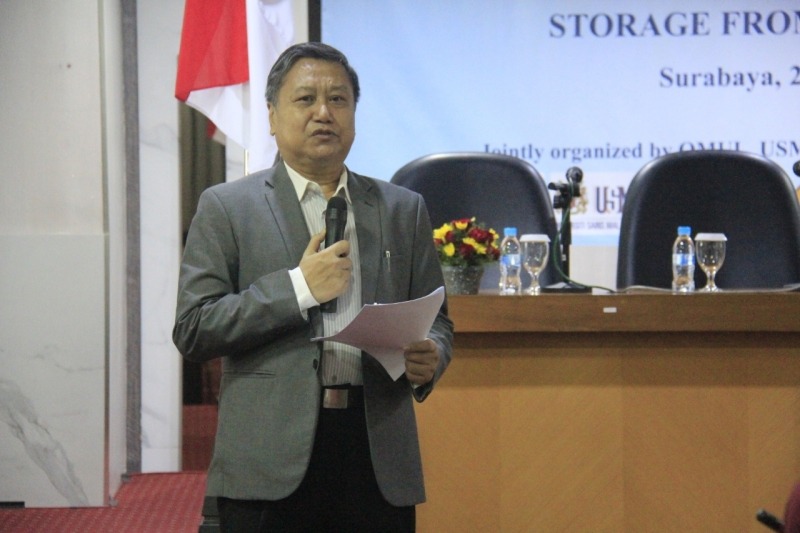
ITS to Establish Cooperation with the British Embassy
ITS continues to widen its network of cooperation, both nationally and internationally. It was proven by the acceptance of a delegation visit of the British Embassy led by Deputy Ambassador, Rob Fenn at ITS Rectorate Building. This visit discusses the cooperation in the field of education and research.
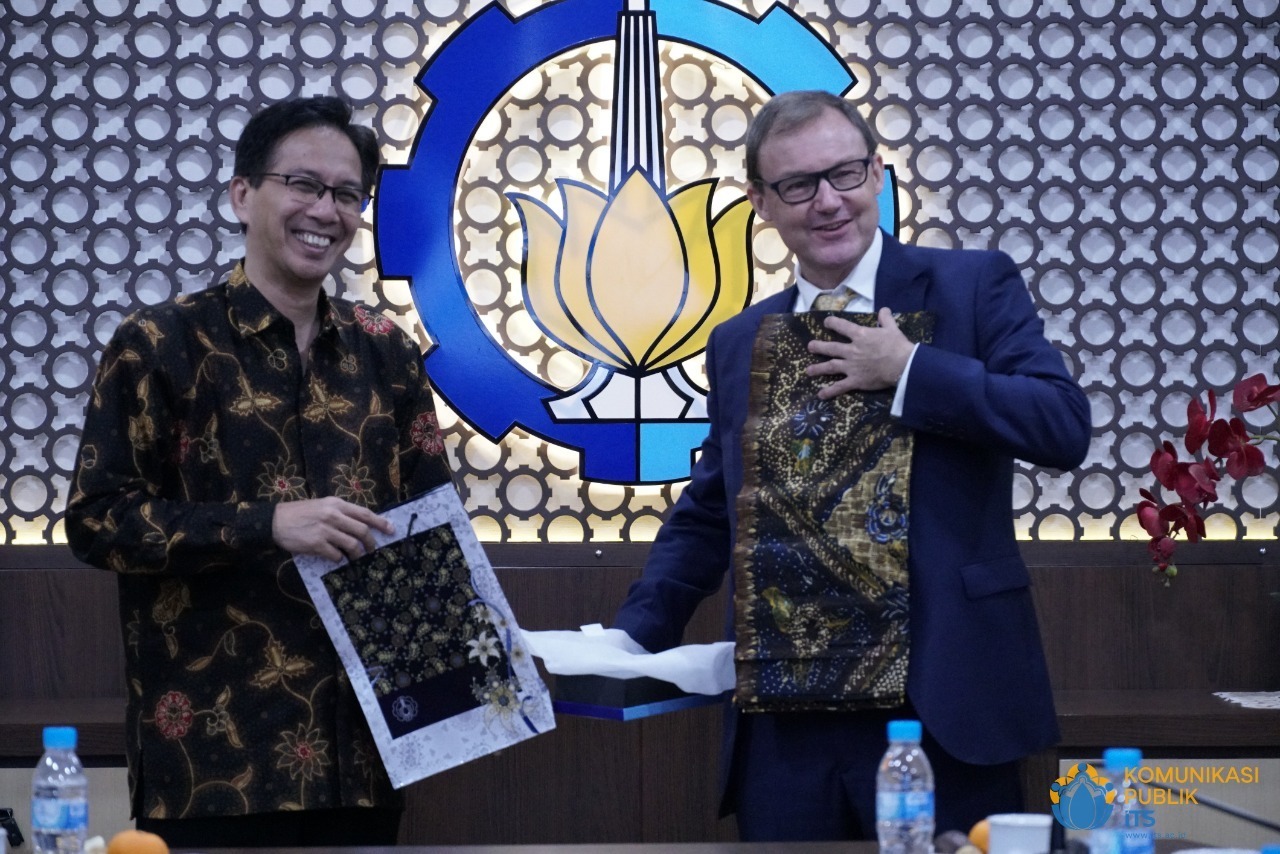
ITS and TU Berlin’s Collaboration on Sustainable City Development
ITS once again takes on a role on sustainable city development and the development of civilization. This time, through the International Seminar entitled “Conscious City: Sustainable and Equitable City-Making”. ITS in collaboration with Technische Universität (TU) Berlin discusses the concept of Smart City and a new idea, namely “Conscious City” in the Main Meeting Room of the ITS Rectorate.

PDPM as the Implementation of ITS Social Responsibility
In essence, every person, group and organization has a social responsibility. This responsibility is in the form of ethics and the ability to do good to the environment based on the rules, values and needs of the community. The implementation of ITS social responsibility is through a community empowerment program launched by the Center for Study of Regional Potential and Community Service (PDPM). PDPM was formed to conduct research, training, and assistance in various aspects of development that are directly related to the community. At least, there are four major agendas of PDPM including, research as well as community service, service, training, and mentoring.
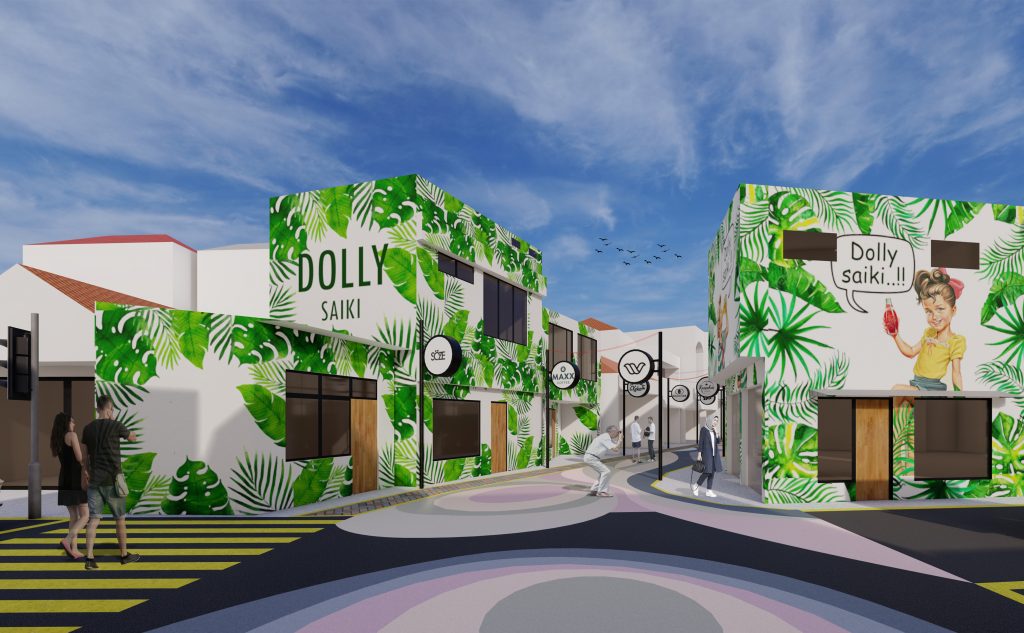
ITS Students Invites Surrounding Communities to Celebrates Worlds Water Day
Water is one of the most vital aspects of human life. Therefore, students of the Department of Environmental Engineering of ITS present an event entitled “Paling Berseri” which involved communities participation in it. The event, which was realized in order to celebrate World Water Day, was successfully held at the Kampung Pacar Keling, Surabaya. This event aims to raise public awareness of water conservation.
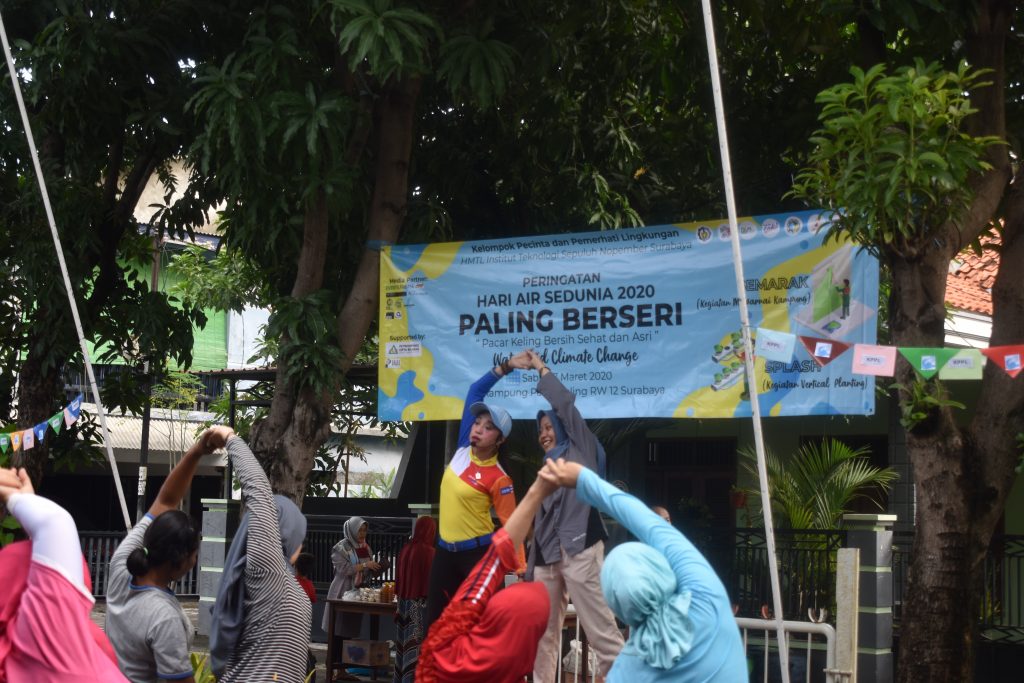
ITS Lecturers Organize a Training of Waste Management to Communities
The increase in population is followed by an increase in the amount of waste that is harmful to the environment. If not treated properly, the waste can trigger disasters for nature and human life. For this reason, ITS lecturers who are members of the Community Service (Abmas) activity, organize training activities on waste management to reduce the amount of Surabaya waste that has not been processed. Since the waste management in Surabaya is still limited to collection and ends up piling up in the Final Disposal Site (TPA). Therefore, there is should be an improvement of waste management process from transportation to processing the waste.
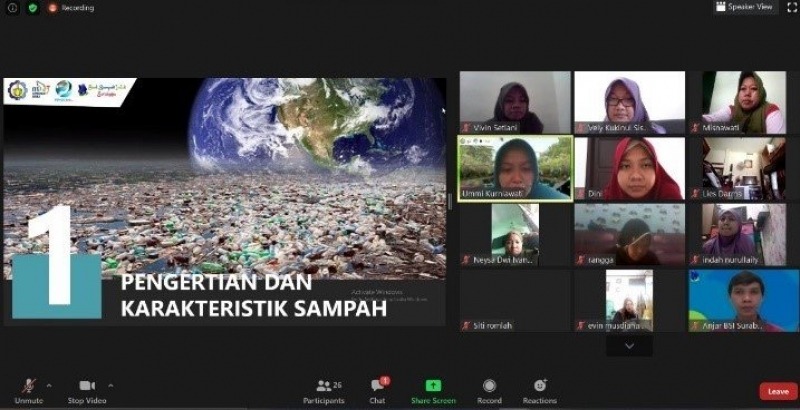
Publication of SDG reports
- Publication of SDG Report - SDG 1
- Publication of SDG Report - SDG 2
- Publication of SDG Report - SDG 3
- Publication of SDG Report - SDG 4
- Publication of SDG Report - SDG 5
- Publication of SDG Report - SDG 6
- Publication of SDG Report - SDG 7
- Publication of SDG Report - SDG 8
- Publication of SDG Report - SDG 9
- Publication of SDG Report - SDG 10
- Publication of SDG Report - SDG 11
- Publication of SDG Report - SDG 12
- Publication of SDG Report - SDG 13
- Publication of SDG Report - SDG 14
- Publication of SDG Report - SDG 15
- Publication of SDG Report - SDG 16
- Publication of SDG Report - SDG 17
Report: SDG 1
Report: SDG 2
Report: SDG 3
Report: SDG 4
Report: SDG 5
Report: SDG 6
Report: SDG 7
Report: SDG 8
Report: SDG 9
Report: SDG 10
Report: SDG 11
Report: SDG 12
Report: SDG 13
Report: SDG 14
Report: SDG 15
Report: SDG 16
Report: SDG 17
Education for the SDGs
ITS SDGs Center
As a university of Engineering and Science, ITS has an obligation to participate so that Indonesia can immediately realize the achievement of the SGDs goals. ITS can play an active role by developing various concepts, implementable methodologies so that the achievement of the SDGs goals in Indonesia is quickly realized. ITS resources, especially superior human resources with various innovative research, are very qualified to contribute to the SDGs program, especially in technology development to support the fields of social welfare, economy, health, education, infrastructure, employment and others.
Therefore, ITS established the Center for the Study of Sustainable Development Goals (SDG center) which is one of the new study centers established in 2020. The establishment of this SDGs study center is a real step for ITS to support government programs in accelerating the achievement of SDGs in Indonesia, especially for Eastern part of Indonesia.
Guest Lecture Series on SDGs
ITS as a leading university in the field of science and technology in Indonesia is committed toward the development of engineering and science and also the achievement of United Nations’ Sustainable Development Goals (SDGs). As a part of that commitment, ITS presents Guest Lecture Series (GLS) on SDGs by inviting Lecturers, Experts, and Academicians from all around the world to be speaker for this program. This program is open for ITS students at any level (Undergraduate, Graduate, and Postgraduate) as well as interested global citizens from partner universities.
Insight and Application of Technology (IAT) Course
The Insight and Application of Technology (IAT) course or Wastek is one of ITS content courses that must be taken. The IAT course is the hallmark of ITS, which will inspire students in developing insights into science, technology and innovation as well as the form of their application in society and the environment. Students will receive material 1) Systems Theory and Systematic Thinking, 2) Knowledge of ITS and National Research Roadmap, 3) Concepts and Knowledge of SDG’s, 4) Introduction to Science and Technopark (STP), 5). Creative and Innovative Concepts, 6) Opensource Technology Concept, 7) Making Student Creativity Program Proposals or similar programs in preparing innovation-based projects along with PKM Proposal outputs (Articles and Videos). At the end of the lecture, students are able to prepare a Student Creativity Program Proposal (PKM). The benefits of learning IAT courses are: Students are able to explain, explain and implement problems in society and the environment with the Technology Application approach and expertise in their fields in accordance with the principles in the IAT teaching material.
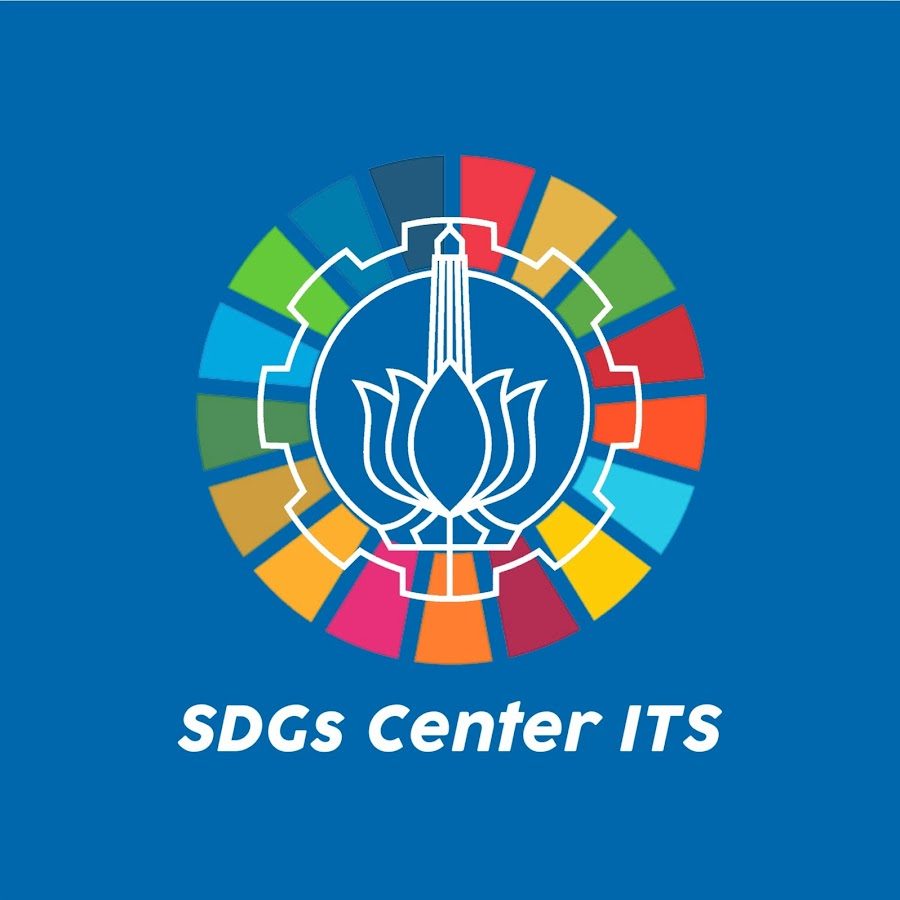
Insight and Application of Technology (IAT) Course
The Insight and Application of Technology (IAT) course or Wastek is one of ITS content courses that must be taken. The IAT course is the hallmark of ITS, which will inspire students in developing insights into science, technology and innovation as well as the form of their application in society and the environment. Students will receive material 1) Systems Theory and Systematic Thinking, 2) Knowledge of ITS and National Research Roadmap, 3) Concepts and Knowledge of SDG’s, 4) Introduction to Science and Technopark (STP), 5). Creative and Innovative Concepts, 6) Opensource Technology Concept, 7) Making Student Creativity Program Proposals or similar programs in preparing innovation-based projects along with PKM Proposal outputs (Articles and Videos). At the end of the lecture, students are able to prepare a Student Creativity Program Proposal (PKM). The benefits of learning IAT courses are: Students are able to explain, explain and implement problems in society and the environment with the Technology Application approach and expertise in their fields in accordance with the principles in the IAT teaching material.
Guest Lecture Series on SDGs
ITS as a leading university in the field of science and technology in Indonesia is committed toward the development of engineering and science and also the achievement of United Nations’ Sustainable Development Goals (SDGs). As a part of that commitment, ITS presents Guest Lecture Series (GLS) on SDGs by inviting Lecturers, Experts, and Academicians from all around the world to be speaker for this program. This program is open for ITS students at any level (Undergraduate, Graduate, and Postgraduate) as well as interested global citizens from partner universities.
Sustainable Development Course
The course of sustainable development is an elective course aimed at providing students with skills in sustainable resource management (3 pillars of sustainable development: social, economic and environmental).
ITS SDGs Center
As a university of Engineering and Science, ITS has an obligation to participate so that Indonesia can immediately realize the achievement of the SGDs goals. ITS can play an active role by developing various concepts, implementable methodologies so that the achievement of the SDGs goals in Indonesia is quickly realized. ITS resources, especially superior human resources with various innovative research, are very qualified to contribute to the SDGs program, especially in technology development to support the fields of social welfare, economy, health, education, infrastructure, employment and others.
Therefore, ITS established the Center for the Study of Sustainable Development Goals (SDG center) which is one of the new study centers established in 2020. The establishment of this SDGs study center is a real step for ITS to support government programs in accelerating the achievement of SDGs in Indonesia, especially for Eastern part of Indonesia.
Guest Lecture Series on SDGs
ITS as a leading university in the field of science and technology in Indonesia is committed toward the development of engineering and science and also the achievement of United Nations’ Sustainable Development Goals (SDGs). As a part of that commitment, ITS presents Guest Lecture Series (GLS) on SDGs by inviting Lecturers, Experts, and Academicians from all around the world to be speaker for this program. This program is open for ITS students at any level (Undergraduate, Graduate, and Postgraduate) as well as interested global citizens from partner universities.
